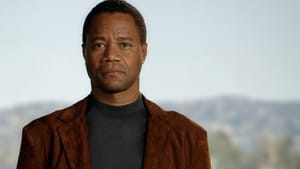Stay in the Loop
BSR publishes on a weekly schedule, with an email newsletter every Wednesday and Thursday morning. There’s no paywall, and subscribing is always free.
Revisiting the O.J. case
FX's 'The People v. O.J. Simpson'

The new FX series The People v. O.J. Simpson tells the story of how a sports-star-turned-celebrity-pitchman was tried for the murder of his ex-wife and a friend of hers. More importantly, it tells the story of why, 154 years after the start of the Civil War, there is still no end in sight.
Showrunners Scott Alexander and Larry Karaszewski start on the day of the murders. Nicole Brown Simpson's and Ron Goldman's bodies are found outside her Brentwood home. Almost immediately, Simpson becomes a suspect — when the police go to his house to inform him of her death, they find him gone, but his white Bronco is on the street with blood on and in it.
The white Bronco, of course, became the personification of the case during the infamous slow-speed chase on LA’s freeways. Simpson was a celebrity, and the police and prosecutors made clear that they were not going to do anything stupid on national TV. In any similar case (and in 38 years as a civil rights lawyer, I have seen quite a few), if a suspect with an outstanding arrest warrant for a double homicide tried to flee, the police would have set up a roadblock with shoot to kill orders.
As Alexander and Karaszewski show repeatedly, Simpson was not treated like any other defendant arrested for a double homicide. The characters involved aren’t the suspects you expect in a domestic murder — they’re squares in the crazy quilt of American celebrity.
Wild with rage and self-pity
Cuba Gooding Jr. plays Simpson with the bravura of his Oscar-winning role as a fictional football star in Jerry Maguire. The Simpson we knew, always meticulously dressed and controlled, is nothing like Gooding's Simpson, wild with rage and self-pity.
The series  focuses on the contending legal teams. Robert Kardashian (portrayed with quiet astonishment by David Schwimmer) is a shy man who unexpectedly finds himself at the center of a national drama. It’s not clear why he and Simpson are such friends, and his central role in the case comes about almost accidentally: he’s pushed center stage at a press conference arranged by Robert Shapiro (John Travolta, doing pretty much a straight impersonation of the wheeler-dealer attorney), who wanted to deflect blame after Simpson failed to surrender to the police as promised. Naturally, creators couldn’t resist showing the very young Kardashian sisters cheering when they see that their father is on TV.
focuses on the contending legal teams. Robert Kardashian (portrayed with quiet astonishment by David Schwimmer) is a shy man who unexpectedly finds himself at the center of a national drama. It’s not clear why he and Simpson are such friends, and his central role in the case comes about almost accidentally: he’s pushed center stage at a press conference arranged by Robert Shapiro (John Travolta, doing pretty much a straight impersonation of the wheeler-dealer attorney), who wanted to deflect blame after Simpson failed to surrender to the police as promised. Naturally, creators couldn’t resist showing the very young Kardashian sisters cheering when they see that their father is on TV.
“He’s black now”
Sarah Paulson plays Marcia Clark with nerves of steel, and Sterling K. Brown, who plays Chris Darden, provides an intensely conflicted portrait of the African-American attorney placed at the prosecution table for all too obvious reason. The private lives of these two characters are highlighted, both to provide contrast to their public personas and, sometimes, to illuminate their personal stakes. In one scene, Darden is enjoying a barbecue in his parents’ backyard while the neighbors watch the Bronco chase and cheer on Simpson. Darden objects, telling them that Simpson doesn't deserve their loyalty — unlike former stars such as Jim Brown, who gave back to the community, Simpson got rich and ignored his roots. “He's white,” says Darden. His neighbor responds, “He's being chased by the police — he's black now.”
Ironically, the series has a roster of A-list actors portraying attorneys who became actors on the most popular TV show of the ’90s: The O.J. Simpson Trial, showed live on Court TV. John Travolta, Courtney B. Vance as Johnnie Cochran, and Nathan Lane as F. Lee Bailey play lawyers whose every statement, every argument, every question to a witness, every physical gesture is measured with the precision of a method actor. All of those attorneys tried desperately to be Marlon Brando in the Godfather, a good man involved in a bad business.
In the end, the trial mirrored a racially fractured America. The African-American community believed a famous black man was being lynched, and this belief trumped any fact, any blood sample, any DNA found by an all-white police team. Others believed justice would prevail, no matter how much money the defendant had, how many race cards his lawyers played, or how famous he was. In the seconds it takes to announce a verdict, that all changed.
America is still trying to process that change.
What, When, Where
American Crime Story: The People v. O.J. Simpson. Created by Scott Alexander and Larry Karaszewski, based on the book The Run of His Life: The People v. O.J. Simpson by Jeffrey Toobin. FX network, Tuesdays at 10pm ET.
Sign up for our newsletter
All of the week's new articles, all in one place. Sign up for the free weekly BSR newsletters, and don't miss a conversation.

 Armen Pandola
Armen Pandola